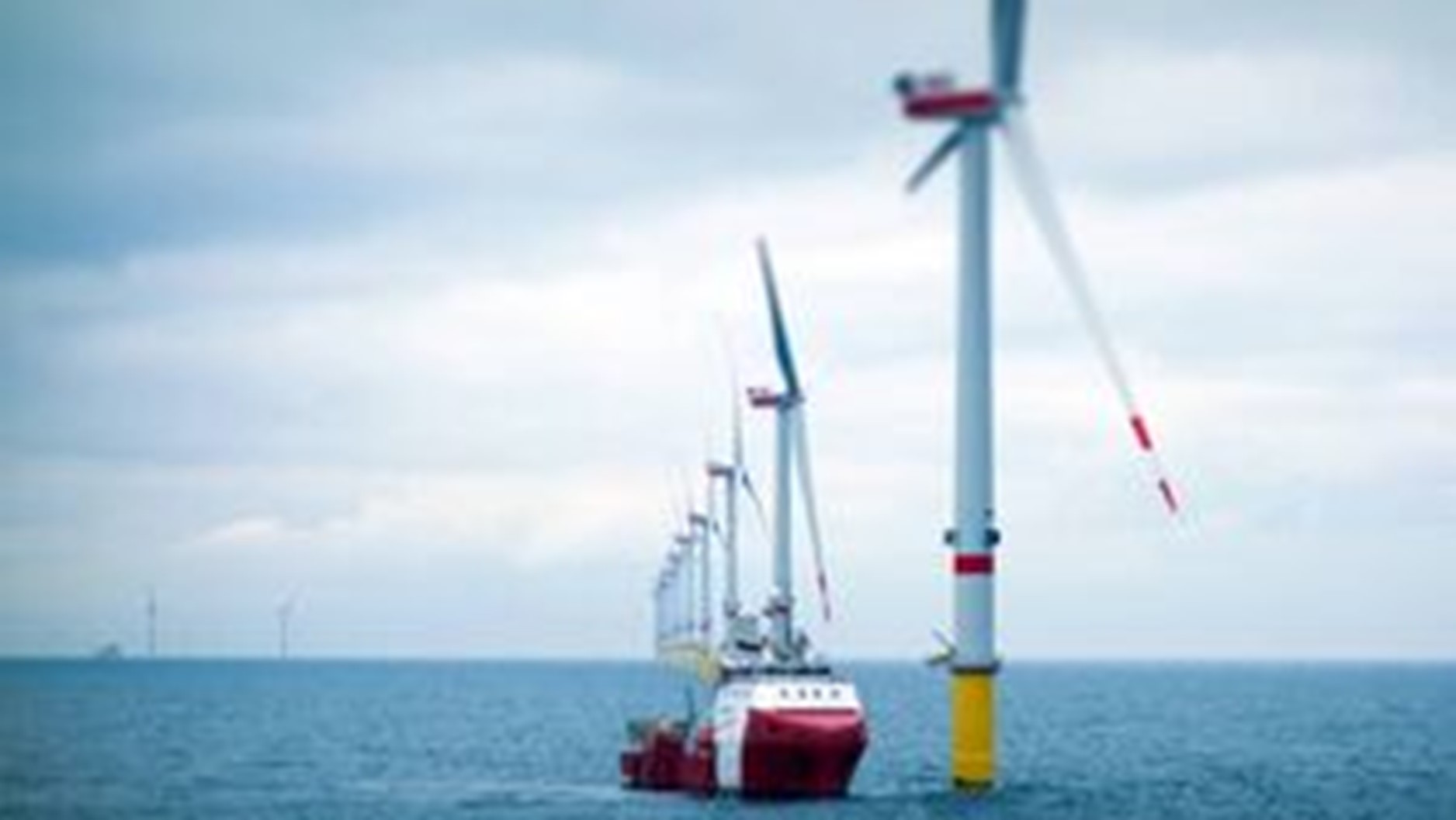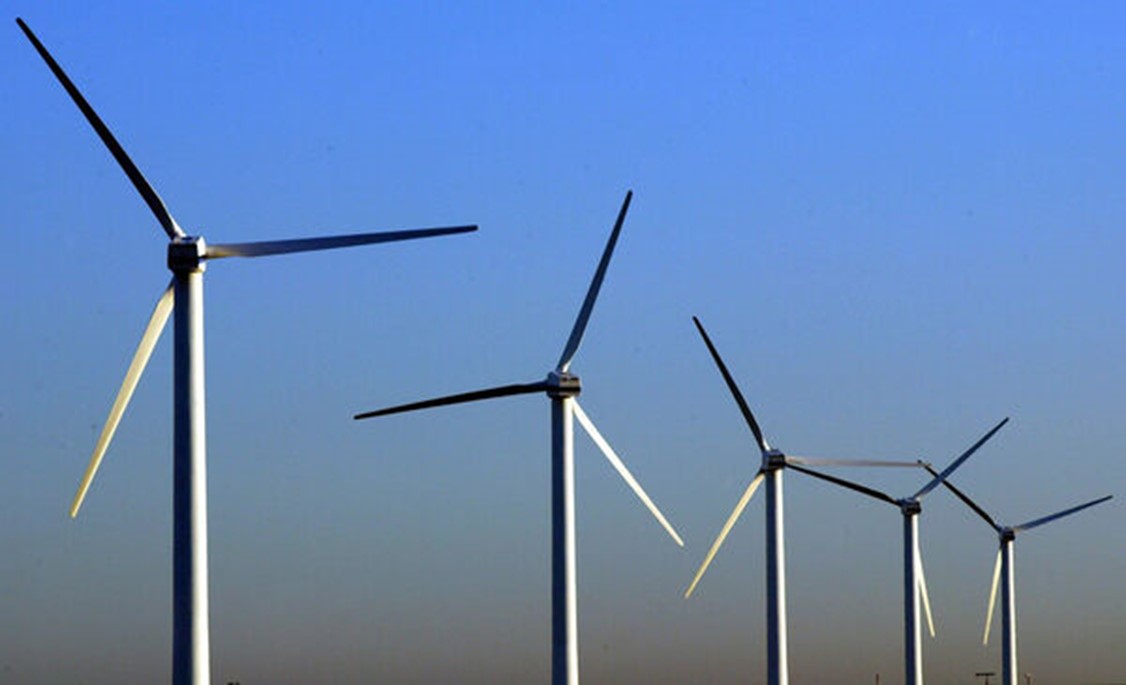Offshore energy a windy way to keep the lights on
Share
Perhaps a major expansion of offshore wind energy will take place, saving the country from blackouts, and satisfying data centres' ravenous hunger for electricity. But it's one hell of a gamble

The offshore sector has, to the greatest extent, been ignored so far. Two projects in development off the east coast are currently the subject of planning objections. File picture
MICHAEL CLIFFORD - © Irish Examiner
A glimpse at the mounting problems for the State’s electricity supply could be seen at the port of Foynes last June. Two large containers of coal passed through the Limerick port en route to Moneypoint. This at a time when the Shannon-based electricity generator was supposed to be winding down its fossil fuel operation in deference to a timetable to end the practice by 2025.
The State is committed to the generation of 70% of electricity through renewables by 2030. Moneypoint is to be a major element of this drive for renewable energy, yet the coal is still coming in.
A spokesperson for the ESB confirmed the generator had been called on to ramp things up recently.
“Moneypoint continues to generate electricity and respond to system demand in line with electricity market requirements,” he said.
“It is being called on to run more frequently in recent months due to the non-availability of gas plants from other market participants and some extended periods of low wind on the Irish system.”
The gas plants referenced were Bord Gáis Energy’s Whitegate plant in Cork and a generator run by Energia in Huntstown, north Dublin. Problems with these plants last winter led to fears that parts of the country could experience rolling blackouts, as if we were all back in the 1970s. The plants are expected to be online in the coming months, but nothing is certain.
Then we have the “extended periods of low wind”. If low wind is going to have a major impact on the generation of electricity, the stated targets for renewables will be in big trouble.
The solution to these problems, the only possible solution under the circumstances, was to ramp up the use of fossil fuels in Moneypoint, effectively going back in time when we are being warned we need to concentrate on the future in order to alleviate the climate crisis.
Data centres

The threat of blackouts, and the sluggish pace of switching to renewables, is all taking place as a huge chunk of electricity demand is gobbled up by data centres. File picture
The threat of blackouts, and the sluggish pace of switching to renewables, is all taking place as a huge chunk of electricity demand is gobbled up by data centres.
There are nearly 80 of these data centres – computer systems that store business and internet data – around the country, with more being added each year. They account for at least one fifth of electricity demand, but this could rise to 40% if all those planned are fully developed.
Ireland now accounts for about a quarter of all the data centres in the EU, according to the industry body, Host In Ireland.
The big companies that own most of the centres, Google, Amazon and Microsoft, claim they are being “scapegoated” for the problem of surging electricity demand.
Last Sunday, the Business Port reported that a representative body for the three companies, Cloud Infrastructure Ireland, is demanding that the Government publishes a new policy statement expressing clear support for the development of data centres.
Michael McCarthy, a former Labour TD who is now the director of CII, told the newspaper that a strong, ambitious statement about the importance of data centres was required.
“Data centres are here to stay, they are a very good news story, they are essential in terms of the economy, integral to our lives.”
It is unclear why these centres are essential, other than that the transglobal companies require somewhere to put them and Ireland has developed the reputation for being a soft touch. Are we being told that the flow of foreign direct investment into the country will slow or dry up if we don’t acquiesce to house these centres?
As of now, the Government is at one with the big tech companies. The Commission for Energy Regulation is conducting a review of energy security, and in a submission the Department of Enterprise Trade and Employment also stated that data centres could become scapegoats for problems with the national grid.
The department’s minister, Leo Varadkar, agrees with this position. He was quoted last week as saying the answer to the country’s supply problem is blowing in on the wind, through offshore wind farms.
“The solution is a huge expansion of renewable energy production, especially off-shore wind, as well as interconnection with France,” he said. “This can be a win-win scenario.”

Then we have the 'extended periods of low wind'. If low wind is going to have a major impact on the generation of electricity, the stated targets for renewables will be in big trouble. File picture: PA
Mr Varadkar appears to be saying we need not worry about the huge draw on the grid from data centres, nor the transformation that will be required to meet climate change renewables, as everything will be solved by building off-shore wind farms to beat the band.
Can it come to pass? Only if there is a transformative approach from the Government driven by major political will. A quick glance at the attitudes of successive governments for at least the last decade shows more or less indifference to the development of wind energy.
For instance, onshore wind farm development is still operating according to guidelines issued in 2006. There are new draft guidelines, but these have all the appearance of simply putting off the evil day when a political price might have to be paid for discommoding either developers or residents in chosen sites.
Through all that time, successive governments have repeatedly kicked the can down the road. Is Mr Varadkar now suggesting that he is a new sheriff, after a decade in government and he will get things moving?
Offshore wind
It is notable that he references offshore rather than onshore wind. The offshore sector has, to the greatest extent, been ignored so far. Two projects in development off the east coast are currently the subject of planning objections. It is difficult to envisage how the pace of development is going to be accelerated to include a “huge expansion” in the next few years.
Another issue that arises is the legislation under which this expansion is to occur. The planning difficulties that have dogged onshore development will not be as onerous offshore, but neither will it be plain sailing.
Earlier this year, the National Marine Planning Framework was passed into law despite objections from the opposition. The framework covers all aspects of marine life including offshore wind energy development.
Most of the objections centred on a lack of scrutiny given to various aspects of the bill. Despite that, the Government went ahead. Form would suggest that with wind energy at issue this may well end up back in the courts.
Perhaps all of these issues can be surmounted and major expansion of offshore wind energy will take place, saving the country from blackouts, and satisfying the ravenous hunger of data centres for electricity. It is, however, one hell of a gamble.
©Irish Examiner